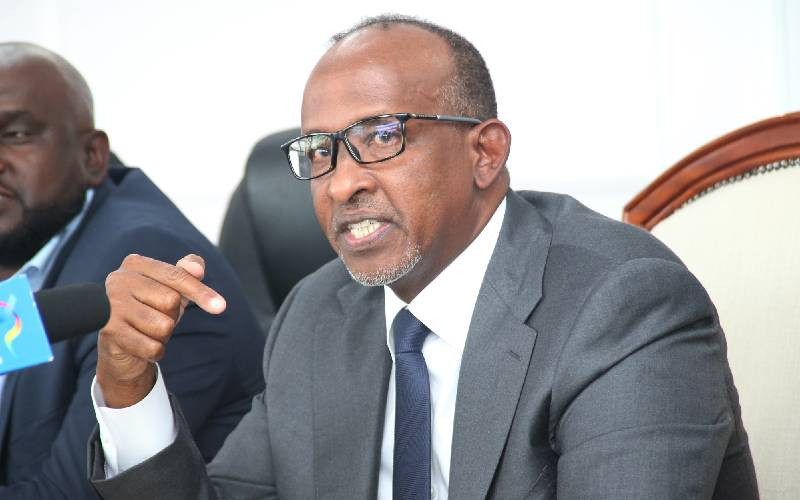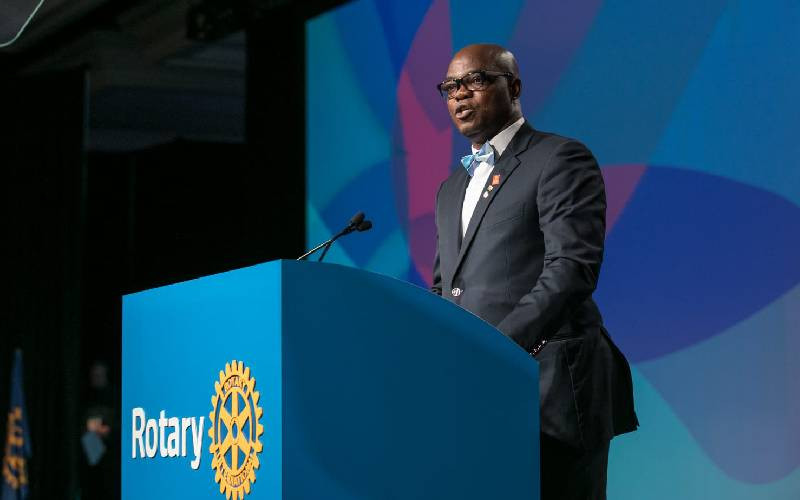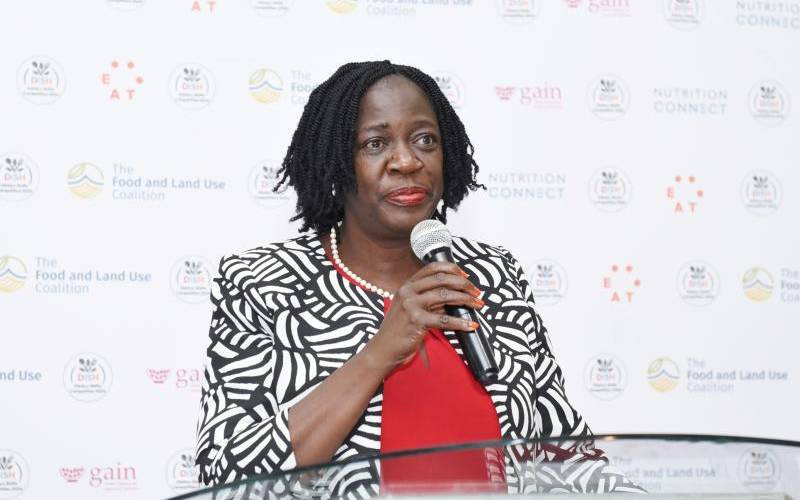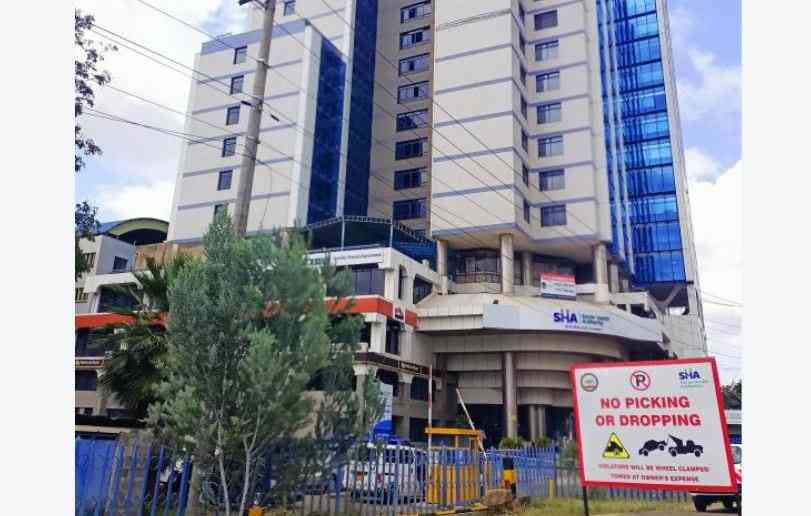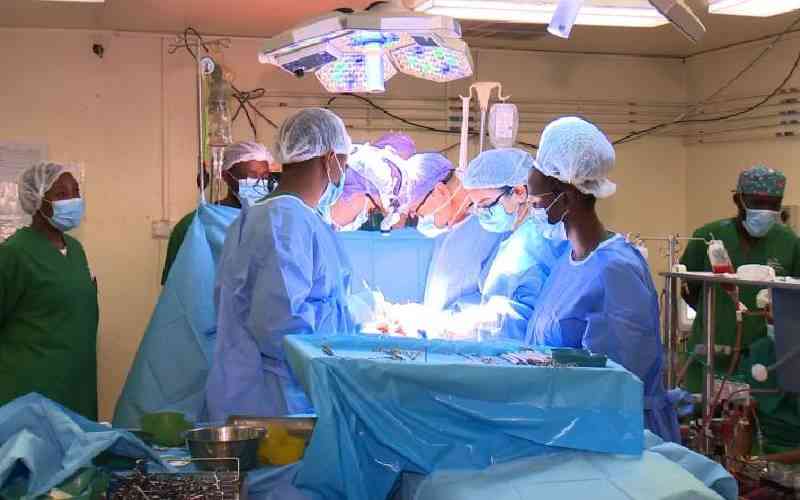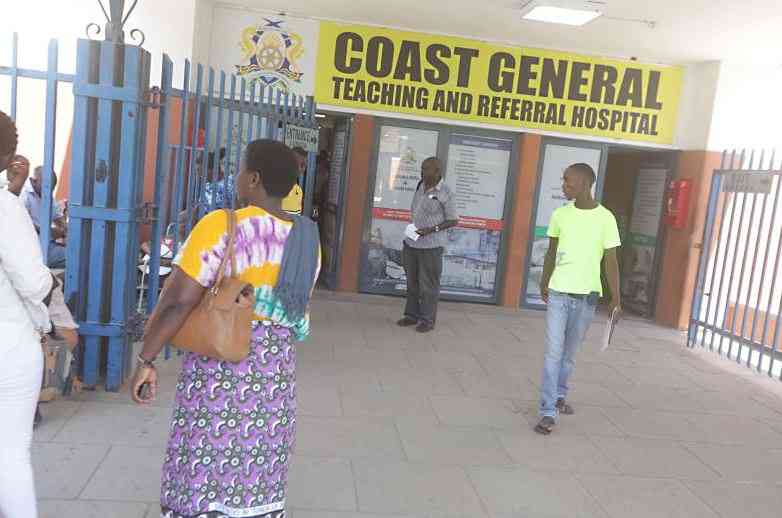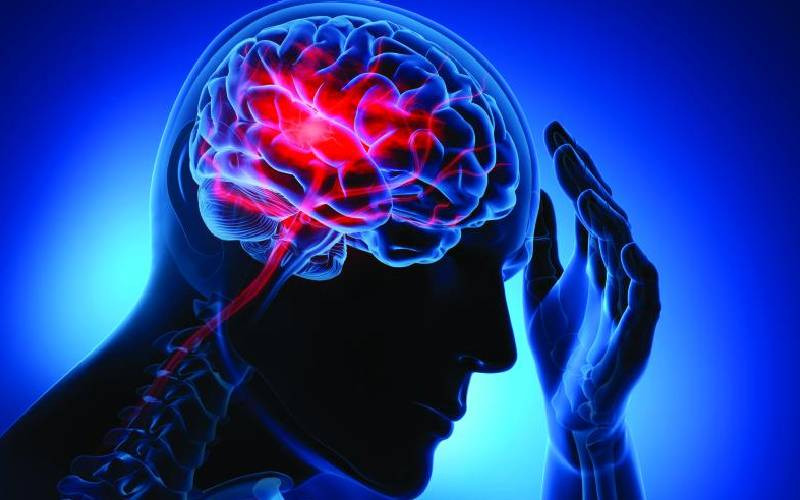
In June 2017, while at work, Justus Okari received a phone call that was to change the trajectory of his life and that of his family. He was informed that his wife, Janet Nyaboke, who had gone to Kisii, had collapsed and was unresponsive. He was in Nairobi, more than 300 km away from his wife.
“At the hospital, they said there was a disruption in the blood flow to the brain. She was given some medication,” says Okari.
For six months, they thought they were managing the condition until she collapsed again while in Kisii.
“I applied for leave and travelled. When I arrived, she was already at the hospital. After the CT scan, the medics said she had suffered a stroke. Her mouth had moved to one side, her eyes couldn’t focus, and you had to move to one side so that she could see you,” he says.
As they say, trouble comes in threes. While the family was still shocked by the news, there was a doctor’s strike, and they were forced to move her from Kisii Teaching and Referral Hospital to a private hospital, which was also overwhelmed by the number of patients.
“The private hospital was at full capacity. Remember, she could not move or do anything for herself. So, I arranged with my insurance and took her to Nairobi, where she was admitted for one week,” he says.
- Experts: Strict vegetarians face higher health risks
Keep Reading
He was allowed to take her home after she started moving her fingers. They were advised to consult a physiotherapist.
“While leaving the hospital, she wanted to use a wheelchair, but the physiotherapist discouraged her, insisting that it would delay the healing process,” he says. Nyaboke then agreed to return home without a wheelchair. It was mentally hard for her, going from being fully independent to relying completely on others.
“I could not move, eat, shower, or sit on my own. I would wait to be lifted. I felt like a burden. I was easily irritable. If I asked someone to do something for me and they delayed, I would feel they delayed because I am in this position. I felt not good enough,” she says.
Nyaboke talks about the efforts that helped her regain her independence, each step symbolising a victory that was once just a dream.
“The first time I walked, I was so excited. I walked further than expected. I was even happier when I was able to shower on my own,” she says.
Nyaboke says the stroke symptoms started in 2016. “I had headaches, I felt like my ears were blocked, my vision was blurred sometimes, and my palms were itchy.”
Itchy palms can be a symptom of nerve damage, leading to neuropathic itch. Sensory nerves transmit information from the skin to the brain, including sensations like itch. Stroke can affect these sensory pathways, leading to neuropathic itch.
However, Nyaboke was told that she had been bewitched and should seek assistance from witch doctors.
“As Christians, we prayed and followed the doctors’ instructions.”
A nurse from Kenyatta National Hospital, Jane Kahuho, explains that a stroke occurs when there is not enough blood supply to the brain. The blood supplies the brain with nutrients and oxygen.
There are two types of strokes: Ischemic stroke occurs when a blood vessel in the brain is blocked or narrowed, preventing blood flow and oxygen from reaching brain tissue. Hemorrhagic stroke occurs when a blood vessel in the brain ruptures and bleeds, leading to increased pressure and damage to brain tissue.
Can one know when there is no blood supply to the brain?
“It’s hard to tell. That’s why most patients have a sudden stroke. You wake up one day and can’t move, you can’t speak. It may be caused by fat or blood clots blocking the blood flow to the brain. Hemorrhagic stroke can be caused by high blood pressure,” says Kahuho.
Each stroke has its own treatment.
“For ischemic stroke, there are drugs administered to dissolve clots. For hemorrhagic stroke, where blood vessels have ruptured, surgery is recommended to repair the rupture,” she says.
It is important for the patient to be in hospital within three to four hours after a stroke.
According to Kinoti Ndege, a neurologist, clot removal by drugs and mechanical devices should be done as early as possible.
“If a person arrives at a hospital within four hours or earlier, thrombolytic medicines like alteplase can be administered.
‘‘Also, mechanical clot retrievers can be inserted into arteries to remove the clot,” he says.
Dr Kinoti adds that mild strokes can recover quickly, but larger strokes take a long time or may never fully recover.
“Maintain a healthy lifestyle, eat healthy food, exercise, and manage existing conditions such as diabetes and hypertension,” he says.
Beatrice Mungai, a physiotherapist, explains that physiotherapy should start 24 to 48 hours after the patient is medically stable.
Clide Agwingi, a nutritionist, emphasises on reducing fats, sugar, and salt to regulate blood pressure.
“Nutritional management of blood pressure involves reducing processed salts and saturated fats, ‘yellow’ fats. There are healthy oils, like omega-3, which help the brain,” he says.
“Another important factor is exercising. Make sure you have an activity that you can do for 30 minutes, as it helps with blood flow,” he adds.
We start with what has been lost, starting with rolling on the bed, then sit,” she says
They also ensure the muscles gain back the strength.
“If you do not move your joints/muscles the stiffness sets in. So the initial stages are painful, but as the patient continues the sessions the pain subsides. Physiotherapy focuses on regaining what was lost, the brain thrives in repetition,” she says
Wanjiku says they work towards improving independence, the healing process is a slow and gradual process, also it depends on the severity.
Nutrition
Clide Agwingi, nutritionist, emphasises on reducing fats, sugar and salts to regulate blood pressure.
“A nutritional management of blood pressure is reducing processed salts and saturated fats, the yellow fats. There are other healthy oils like omega 3, that helps the brain,” he says
Agwingi talks about fruits that are rich with antioxidants vitamin C, E, K, that reduce inflammation.
“Another important factor is exercising. Make sure you have an activity that you can do for 30 minutes, that helps with blood flow,” he says
Whole grain foods or unprocessed foods also help in improving health. They have fibers that help in reducing cholesterol in the body. High cholesterol can cause blockage.
 The Standard Group Plc is a multi-media organization with investments in media
platforms spanning newspaper print
operations, television, radio broadcasting, digital and online services. The
Standard Group is recognized as a
leading multi-media house in Kenya with a key influence in matters of national
and international interest.
The Standard Group Plc is a multi-media organization with investments in media
platforms spanning newspaper print
operations, television, radio broadcasting, digital and online services. The
Standard Group is recognized as a
leading multi-media house in Kenya with a key influence in matters of national
and international interest.


